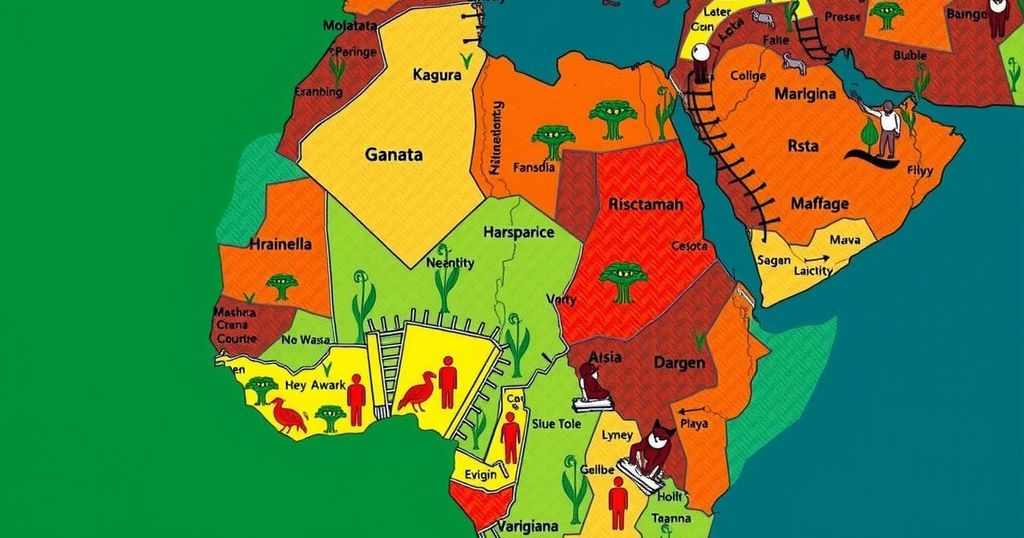The Country Climate and Development Report for Guinea-Bissau emphasizes the importance of strong institutional frameworks to enhance climate resilience and sustainable development, highlighting challenges like poverty and political instability. Immediate actions include promoting climate-smart agriculture and increasing energy access to mitigate the impacts of climate change, while fostering good governance remains essential for long-term growth.
In a recent announcement, the Country Climate and Development Report (CCDR) for Guinea-Bissau highlights the critical components required for enhancing climate resilience and sustainable development. With one of West Africa’s richest natural capitals per capita, the nation grapples with challenges including widespread poverty, political instability, and economic dependency on cashew nuts. Additionally, the country suffers from low electricity access, premised by climate change that exacerbates the risks for vulnerable communities in coastal regions, agricultural areas, and those with insufficient infrastructure. To adapt effectively, it is essential to establish robust governance, political stability, and a conducive business environment. Rosa Brito, the World Bank Group Resident Representative in Guinea-Bissau, emphasized the report’s role in providing a structured approach toward integrating climate actions with developmental aspirations. She noted the necessity of leveraging natural resources while considering the country’s high susceptibility to climate impacts. The CCDR proposes a comprehensive methodology to mitigate climate vulnerability, suggesting a mix of governance enhancements, economic diversification, and sustainable investments in agriculture and infrastructure. Central to the report is the strategic recommendation to engage local communities, unlocking potential long-term advantages and diminishing climate risks. Immediate initiatives identified in the report for the upcoming three years include the implementation of climate-adaptive agricultural methods aimed at boosting productivity while conserving essential water and land resources, as well as initiatives to restore and safeguard forests. Additionally, the report calls for increased energy accessibility and development of human capital and knowledge systems. The findings of the CCDR reflect the potential for alignment between climate action and developmental objectives, positioning Guinea-Bissau favorably to accomplish its future aspirations. Countries that experience rapid growth and prosperity can better defend themselves against the adverse effects of climate change. Therefore, pursuing more sustainable, robust, and equitable growth presents the optimal strategy for Guinea-Bissau to confront the global climate crisis.
Guinea-Bissau possesses remarkable natural resources yet faces significant developmental hurdles that include high poverty rates, political instability, and an overwhelming reliance on a single agricultural commodity, cashew nuts. The country also suffers from one of the lowest rates of electricity access in the region. Additionally, communities residing in low-lying coastal areas and those dependent on agriculture and fishing are especially at risk from climate change. The CCDR aims to address these vulnerabilities and provide a framework for sustainable development through improved governance and diversified investments.
In conclusion, the Country Climate and Development Report underscores the imperative nature of climate resilience and sustainable development in Guinea-Bissau. The integration of good governance, economic diversification, and community engagement emerges as vital for addressing the challenges posed by climate change. The identified immediate priorities set the stage for significant advancements towards achieving both climate and development goals, ultimately positioning Guinea-Bissau towards a more sustainable and equitable future.
Original Source: www.miragenews.com






